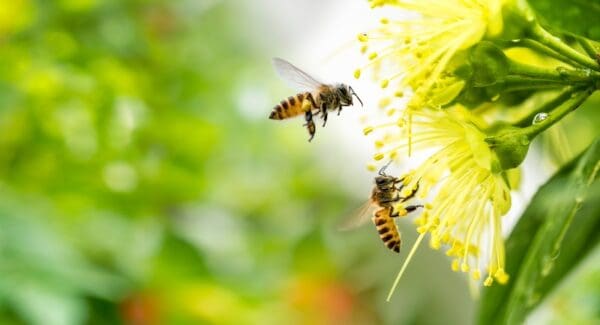
The 2017 Rhode Island legislative session saw progress made on local food, but more work remains next year. Photo: Photo: By Chensiyuan via CC 4.0
The 2017 Rhode Island General Assembly session recessed on June 30, leaving the fate of lots of proposed legislation up in the air. The House and Senate reconvened on September 19 to handle much of the unfinished business. It appears that this year’s session is now done until January (save for PawSox hearings). CLF was ready to take action on September 19 if bad environmental bills appeared; thankfully none did.
We’ll bring you up to speed on the primary bills that CLF worked on in two parts, tackling those that affect our food systems and waters below and those that impact our shift to renewable energy sources here.
Cutting Food Waste
Food waste is a key issue affecting multiple spokes in the food system wheel: an access issue, an environmental issue, an economic issue – and an issue that must be elevated to the forefront of our conversations as we think about how to grow a robust and resilient Rhode Island. That’s why CLF has been working on the issue for years, including lobbying in support of Rhode Island’s groundbreaking food waste ban.
In March we had the opportunity testify in support of House Resolution 5421, which would create a Special House Commission to Study Implementation of a Food Recovery Incentive Program. House Resolution 5421 was spearheaded by Representative Lauren Carson, a friend of CLF. We were pleased to have a voice in the conversation from initial stages of this proposal, helping Representative Carson shape the Commission’s charge and its membership. By looking holistically at the field of food waste and food recovery, this Commission can lay the groundwork for legislation next session to divert food from the waste stream to beneficial uses.
We look forward to working with the Commission through our role on the Rhode Island Food Policy Council (which has a seat on the Commission) and supporting Representative Carson’s efforts to reduce food waste and encourage food donation next session.
Supporting and Growing Urban Farms
CLF supported two bills related to farms and food that unfortunately met with mixed results.
H-6147 (sponsored by Representative Lauren Carson) and S-830 (sponsored by Senator Elizabeth Crowley) would have created a tax break for urban farms, which are an emerging and important part of growing our local food system. CLF drafted this bill, which was supported by other organizations ranging from the Rhode Island Farm Bureau to the Rhode Island Food Policy Council.
Some Rhode Island cities and towns, however, had concerns about how the bill would be implemented, particularly around what kinds of land would qualify for the tax exemption. CLF worked on compromise language, but ultimately the bill did not pass this year. Nevertheless, we are looking forward to continuing to work on the bill outside the legislative session in the hope that it will pass smoothly next year.
Boosting Innovation in Agriculture
Governor Raimondo’s proposed 2018 fiscal budget would have doubled the state’s contribution to the Local Agriculture and Seafood Act grant program. This program offers unique, no-strings-attached support to Rhode Island farmers, fishers, and aquaculturists (CLF helps to administer the program).
Last fall, CLF had joined the Rhode Island Department of Environmental Management and others in requesting that the Governor consider increasing her support for this program, and we were excited when she included this increase in her budget. We even showed up at the House and Senate Finance Committee hearings to say so! During negotiations with the House, however, support for the program was stripped entirely from the budget.
Representative Deborah Ruggiero and Senator Sue Sosnowski worked hard to get the funding back into the final budget (albeit at its original, not doubled, amount). Governor Raimondo, Representative Ruggiero, and Senator Sosnowski all deserve kudos for their hard work in support of this small but vital program.
Fighting Off a Threat to Water Protections
At the end of the session, a poorly conceived bill to create a statewide water authority was introduced (H-6122; S-810). While CLF has long supported thoughtful management of the state’s finite water resources, CLF opposed this bill because it threatened existing conservation protections for both land and water resources. Fortunately, these bills were defeated.
Your voice helped to make a difference on these bills this past year, and we’re counting on you to again call, write, and email your legislators in the session ahead so that we can be sure to keep good ideas moving forward for Rhode Island’s food, water, and energy.



